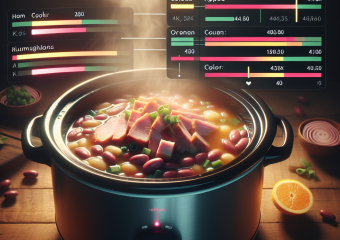This Is the Best Time of Day To Eat Protein, According to a Dietitian – Health.com
:max_bytes(150000):strip_icc()/BestTimeForProtein-faca6cb586b6464b93dc0e842287c780.jpg)
Protein is composed of amino acids, which are needed for important processes such as immune function, neurotransmitter and hormone synthesis, and muscle growth.
Adding more protein to your diet can benefit health by supporting satiety, improving body composition, and preventing muscle loss during weight loss and aging.

Though the timing of ingesting protein matters much less than your overall protein consumption, eating protein at specific times may help you reach certain health goals, such as packing on muscle mass and supporting exercise recovery.
Here are the best times to eat protein, depending on your personal goals.

People who are trying to lose excess body fat can benefit from adding more protein to their diet. High-protein diets can help support feelings of fullness after eating by slowing digestion and stimulating the release of satiety hormones such as such as peptide YY (PYY) and cholecystokinin (CCK). This can help you eat fewer calories, which supports fat loss.
High-protein diets are diets that contain more protein than the current RDA, which is set at 0.8 grams per kg (g/kg) of body weight (0.36 grams of protein per pound (g/lb). Keep in mind that the RDA is the minimum amount of protein necessary to meet the body’s amino acid requirements and to prevent muscle loss, not the optimal amount for health. People who are trying to lose weight may need more protein than people who are trying to maintain their weight. This is because restricting calories increases the risk of muscle loss, which can negatively impact metabolism, strength, and more.
Experts suggest that people who are trying to lose weight while maintaining their muscle mass may require between 2.3 and 3.1 g of protein per kg of body weight (1 to 1.4 g/lb), which is significantly more than the RDA.

For general health and when trying to lose weight, it’s best to add at least one protein-rich food to every meal and snack in order to reach your daily protein needs. Studies show that as long as you’re consuming adequate protein for your body’s needs, protein distribution doesn’t make a difference when it comes to promoting weight loss. This means that there’s no “best” time to eat protein if you’re trying to lose weight and that it’s more important to evenly distribute protein throughout the day to support satiety and weight loss.

Protein makes up 80% of muscle mass and is a key dietary component when trying to build muscle.
As with weight loss, it’s most important to take in adequate protein throughout the day than focusing on specific protein timing when trying to build muscle. If you’re trying to build lean body mass by increasing your resistance training, it’s critical to take in extra protein to support muscle growth. Experts suggest that those who are trying to boost muscle growth with resistance training may need to take in between 1.6 to 2.2 g/kg (.72 to 1 g/lb) of protein per day to optimize hypertrophy, or the enlargement of muscle mass.
This can be accomplished by increasing your overall protein intake by adding extra protein sources to meals and snacks. A 2023 study that included 40 healthy older males found that the participants who paired a high-protein diet providing 1.6 g/kg of protein per day with three weekly strength training sessions for eight weeks gained significantly more muscle mass and muscle strength compared to men who participated in the same strength training regimen while following a diet that provided the protein RDA of 0.8 g/kg of protein per day.
Spreading your protein intake throughout the day by having protein-rich meals and snacks is the most effective way to boost muscle growth.
That said, timing protein intake around resistance workouts could help you reach your body composition goals more efficiently and may help improve performance.
A 2019 study that included 18 people found that the participants who took a whey protein-based supplement immediately before and after resistance training workouts three times per week for 12 weeks had greater increases in muscle circumference and strength compared to participants who consumed a placebo.
If you’re looking for an effective way to boost muscle growth, consuming around 20 g of protein, such as a protein shake, before or after resistance training could help maximize muscle growth. However, it’s most important to meet your body’s daily protein needs by consuming protein-rich foods throughout the day and paying attention to the type of protein you’re eating.
High-protein diets can protect against muscle loss during weight loss as well as muscle loss related to other circumstances, such as aging.
Ingesting more protein during weight loss can help you maintain or build muscle mass, which helps support a healthy resting metabolic rate, or the calories you burn while at rest.
Muscle loss is common during weight loss, especially in those following very low-calorie diets. Studies show that increasing protein intake by adding more protein-rich foods to every meal and snack could help prevent this common side effect.
A high-protein diet has also been shown to protect against muscle loss in older adults. A 2023 review concluded that diets providing between 1.0–1.6 g/kg (0.45-0.72 g/lb) of protein per day can benefit older adults by stimulating muscle growth, preserving strength, and protecting against muscle loss. A high-protein diet seems to be especially helpful for preventing muscle loss in older adults and in people who are losing weight when when paired with strength training.
Older adults who struggle to meet their daily protein needs through food alone can boost their protein intake by drinking protein shakes, such as those made with whey or pea protein, between meals.
Consuming protein before, during, or after exercise may help minimize exercise-induced muscle breakdown and increase muscle protein synthesis, which can enhance recovery.
A 2023 review found that consuming protein close to or during exercise helped reduce a marker of exercise-induced skeletal damage called creatine kinase and also helped preserve strength in those performing resistance exercise.
Importantly, these results were unaffected by protein timing, meaning that taking in protein before, during, or after your workout could help support exercise recovery.
Your dietary needs and timing depend on your schedule, sleep patterns, and more.
In general, it’s not a bad thing to eat protein late at night. In fact studies show that consuming protein before bed can help support muscle growth and exercise recovery.
However, some research suggests that eating close to bedtime may negatively impact sleep by leading to more night-time awakenings, at least in some people.
If you can meet your protein needs by eating regular meals throughout the day, don’t have significantly increased protein requirements, and/or notice eating before bed disrupts your sleep, you may want to avoid eating close to bedtime to support optimal sleep.
High-protein diets are very safe and there’s currently no evidence to suggest that high protein diets are harmful to health. Studies show that diets that provide more than four times the RDA for protein are generally safe and aren’t associated with adverse side effects in healthy people.
High-protein diets have been shown to benefit multiple aspects of health, such as improving bone density, supporting fat loss, and reducing high blood sugar levels.
While high-protein diets are generally safe for most people, they should be avoided by those with certain health conditions, such as those with kidney disease.
Additionally, a diet too high in specific protein-rich foods, like red and processed meats, may increase your risk of developing certain health conditions, including colorectal cancer.
While high-protein diets are generally safe for healthy people, it doesn’t mean that you need to follow a diet extremely high in protein. While some people, such as those who engage in heavy resistance training, those who are actively losing weight, and those who want to build muscle, could benefit from a very high- protein diet, studies show that most active adults can meet their body’s protein requierements by taking in between 1.2-2.0 g/kg (0.54-0.9 g/lb) of protein per day. This equates to 81-135 g of protein per day for a 150 lb person.
This can easily be achieved by spreading your protein intake throughout your day by focusing on protein-rich meals and snacks.
Protein is needed for critical processes such as muscle growth and immune function. Though consuming protein at certain times could benefit people with specific health goals, such as building muscle mass and recovering from exercise, your total protein intake is what matters most for overall health and body composition.
Try boosting your protein intake by choosing protein-rich meals and snacks and pairing protein with resistance training to support muscle growth.





